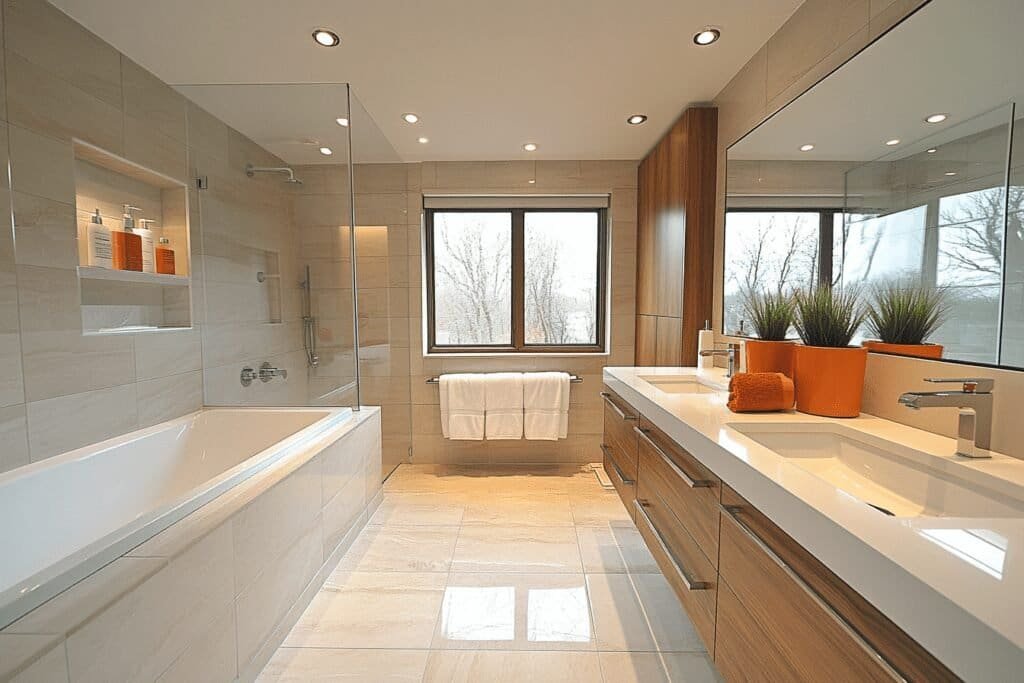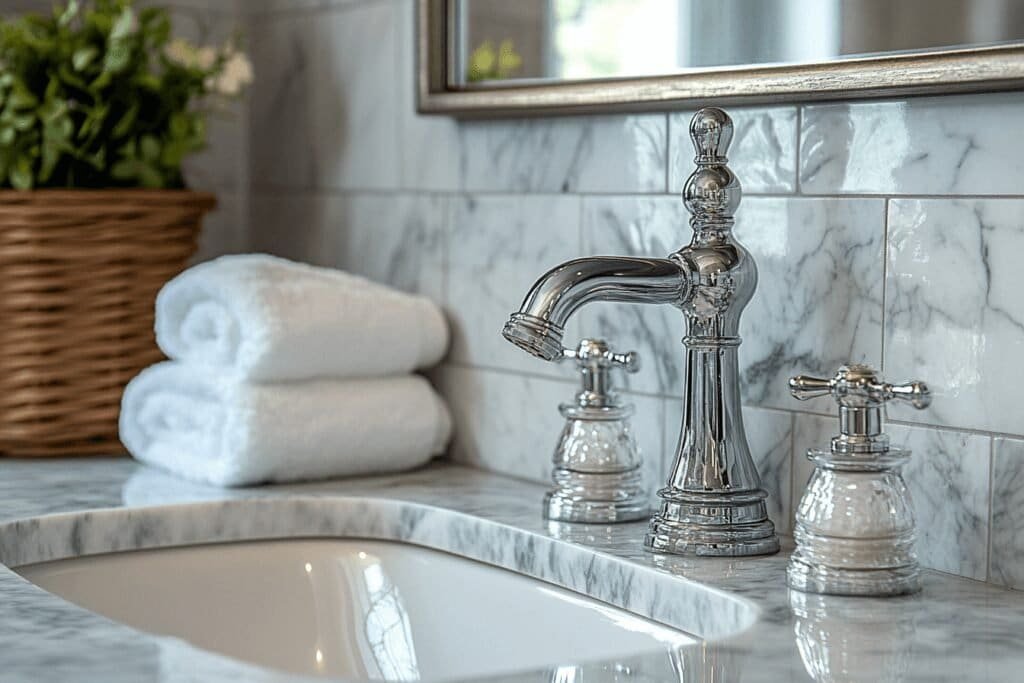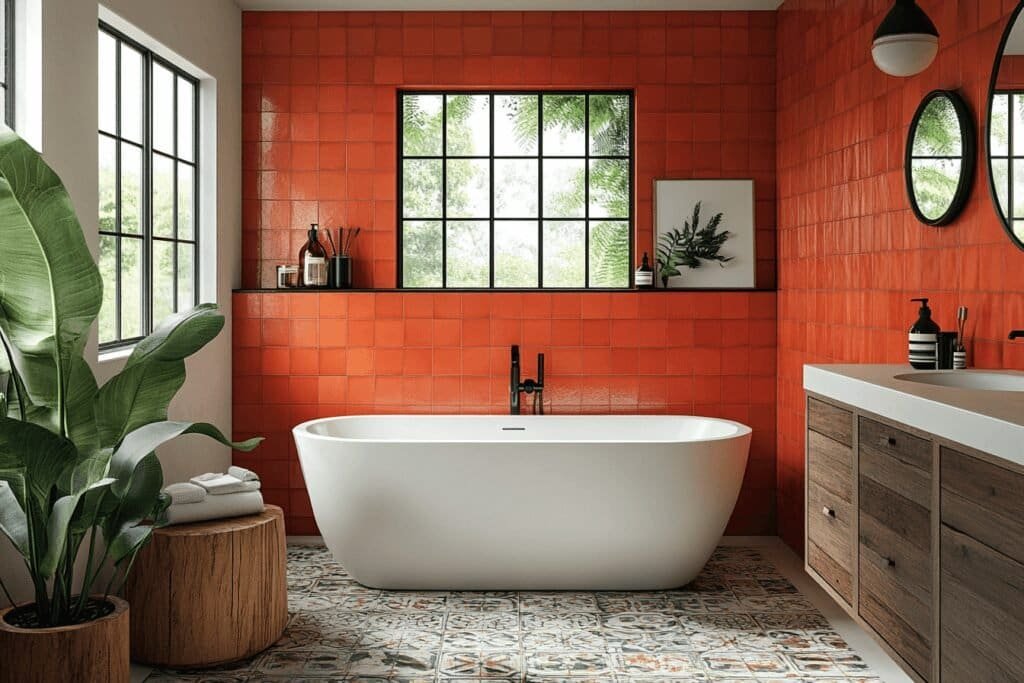Renovating your bathroom can transform one of the most important rooms in your home into a functional, stylish, and updated space. However, one of the first questions homeowners often ask is, “How much will it cost?” Bathroom renovation costs can vary widely depending on a number of factors. Understanding the cost breakdown can help you plan, budget, and make informed decisions.
In this article, we’ll dive deep into the key factors that influence bathroom renovation costs, offer insights on budgeting, and provide tips for maximizing your investment without breaking the bank.
Factors That Influence Bathroom Renovation Costs
Several factors come into play when determining the cost of a bathroom renovation. Each of these factors can significantly alter your final bill, so it’s important to be aware of how they interact.
- Size of the Bathroom: The size of the bathroom is one of the biggest factors affecting renovation costs. Larger bathrooms require more materials and labor, which can drive up the price.
- Scope of Renovation: Are you doing a full renovation or just a partial update? A complete remodel that involves gutting the bathroom will cost far more than a refresh that involves only replacing a few fixtures or repainting.
- Quality of Materials and Fixtures: High-end materials, such as marble or custom cabinetry, can increase costs significantly. Conversely, choosing mid-range or budget-friendly options can keep the project within a more affordable range.
- Labor Costs: The rates of bathroom remodel contractors, plumbers, electricians, and tilers can vary depending on your location, their experience, and the complexity of the job.
- Location: The cost of living in your area impacts labor and material prices. A bathroom renovation in a major city will likely be more expensive than in rural areas.
Understanding these factors is crucial in managing both expectations and expenses during your bathroom renovation.
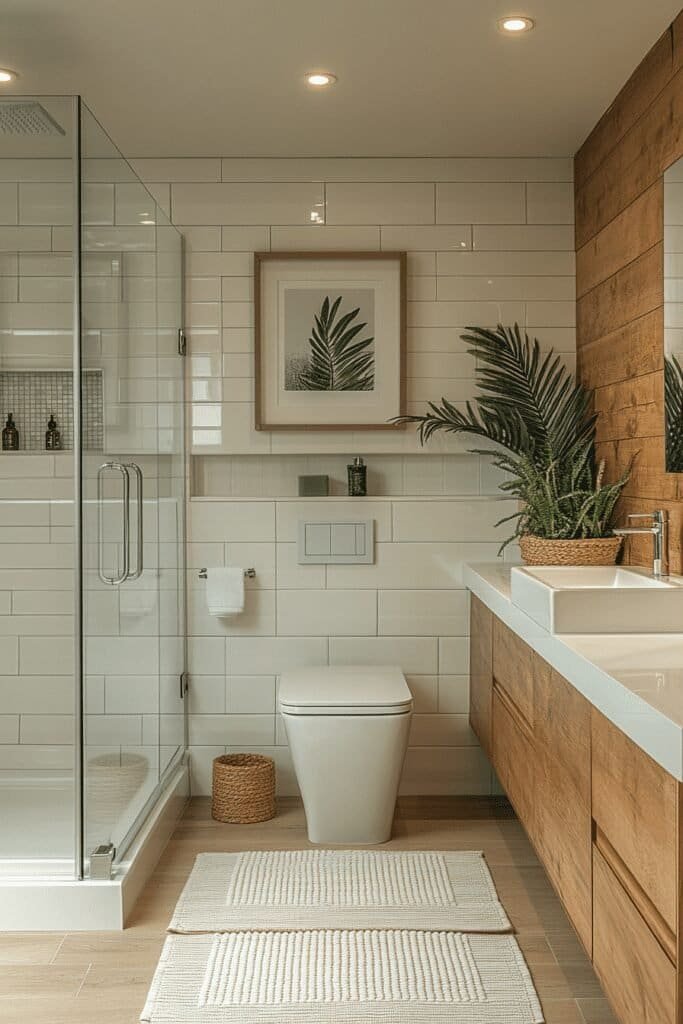

Average Bathroom Renovation Costs by Type
The cost of a bathroom renovation can be categorized based on the size and type of project. Here’s a rough breakdown of what you can expect for different types of renovations.
- Small Bathroom Renovations: A small bathroom (typically 5×7 feet) renovation usually ranges between $6,000 and $15,000. This typically includes replacing basic fixtures like the toilet, sink, and shower.
- Mid-Range Bathroom Renovations: A mid-range renovation, often involving a larger bathroom with more updates (like new flooring, a custom vanity, and upgraded fixtures), can cost between $15,000 and $30,000.
- Luxury Bathroom Renovations: For larger, master bathrooms with high-end materials, custom designs, and advanced features (like heated floors or a soaking tub), expect to pay between $30,000 and $60,000 or more.
These figures provide a general sense of what to expect, but individual choices about materials and labor can shift costs significantly.
Cost of Materials and Fixtures
One of the most important aspects of a bathroom renovation is the materials and fixtures you choose. Each element contributes to the overall cost, and knowing what to expect can help you plan accordingly.
- Flooring: Tile is the most common option for bathroom flooring, ranging from $3 to $10 per square foot for basic ceramic tile. High-end options like natural stone or designer tiles can cost upwards of $15 to $30 per square foot.
- Fixtures: The cost of sinks, toilets, and bathtubs varies greatly. A basic toilet can start at $100, while a high-end model with smart features could run over $1,000. Similarly, a standard bathtub can cost around $500, but a freestanding tub could go for several thousand.
- Countertops: Granite, quartz, and marble are popular choices, ranging from $50 to $150 per square foot installed. Prefabricated countertops, which are less customizable, are often more affordable than custom cuts.
- Cabinetry and Vanities: Custom vanities can be quite costly, ranging from $1,000 to $5,000 or more, depending on materials and finishes. Prefabricated options are usually more budget-friendly, starting at around $200.
Material choices often come down to personal preferences and budget, but even small upgrades in quality can make a big difference in the overall look and durability of the bathroom.
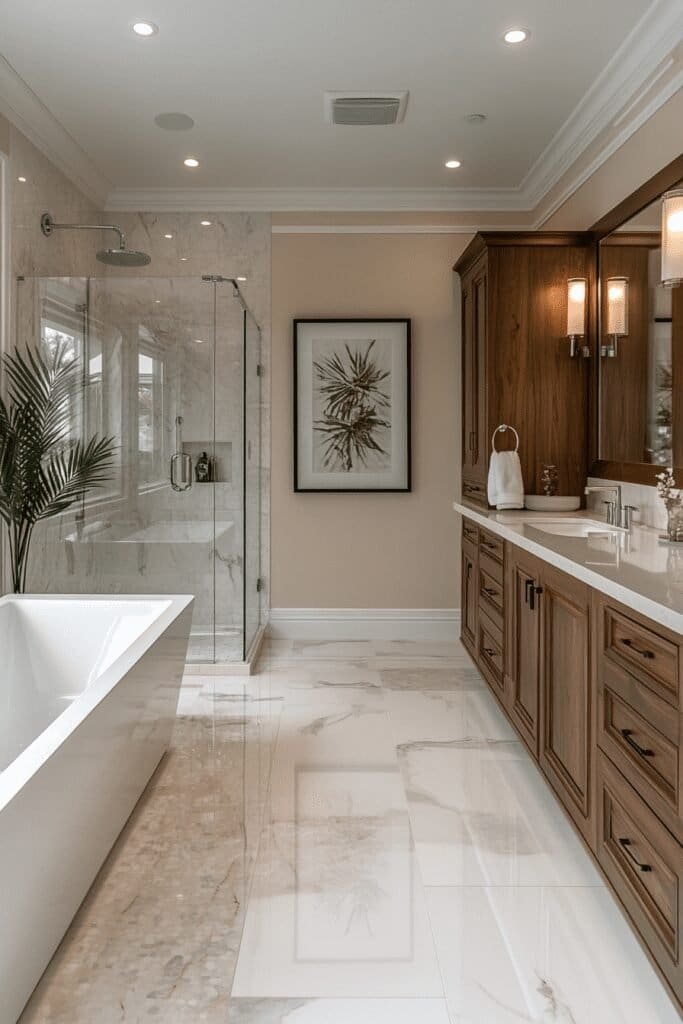

Plumbing and Electrical Costs
Renovating a bathroom isn’t just about the surface. Plumbing and electrical systems often need to be upgraded, which can add to the overall cost.
- Plumbing: The cost of plumbing will depend on whether you’re moving fixtures or keeping them in place. Moving the shower, toilet, or sink can significantly increase labor costs, sometimes adding $1,000 to $5,000 or more to the project, especially if there are complications with the existing plumbing.
- Electrical Work: Upgrading your bathroom’s electrical system, especially in older homes, is another key cost consideration. Adding outlets, installing lighting fixtures, or moving electrical lines can cost between $1,000 and $3,000, depending on the complexity.
Plumbing and electrical work should always be done by licensed professionals to ensure safety and compliance with building codes.
Labor Costs for Bathroom Renovations
Labor is typically one of the most significant expenses in a bathroom renovation. The cost of labor varies by location, experience, and the scope of the job. Here’s a breakdown of typical labor costs:
- General Contractors: Hiring a general contractor to manage your project typically costs between 10% to 20% of the total renovation cost. For example, if your renovation costs $20,000, expect to pay $2,000 to $4,000 for project management.
- Plumbers and Electricians: Licensed plumbers and electricians charge between $50 to $150 per hour. Complex jobs, like rerouting plumbing or upgrading wiring, will drive up the labor costs.
- Tile Installers and Painters: Tile work can cost between $5 to $15 per square foot installed, while painters typically charge between $300 and $800 for a small bathroom.
Although labor costs can be high, experienced contractors often provide peace of mind by ensuring the job is done correctly and efficiently. Negotiating prices and getting multiple quotes can help you find the best value for your money.
Hidden Costs to Watch Out For
Even with the best planning, unexpected costs can arise during a bathroom renovation. Some of the most common hidden costs include:
- Water Damage Repair: If your bathroom has hidden water damage, repairing it can add $500 to $2,500 to your total costs.
- Mold and Mildew Removal: Mold can be a costly issue, requiring specialized treatments that can range from $500 to $3,000, depending on the severity.
- Structural Issues: If structural problems are uncovered during the renovation, they can significantly increase the cost. Repairs to subfloors, walls, or ceilings can add thousands of dollars to your project.
- Permits: Depending on your location and the scope of the work, you may need permits for plumbing, electrical, or structural changes. These fees can range from $100 to $1,500.
By being prepared for these hidden expenses, you can better manage the overall bathroom renovation cost and avoid financial surprises.
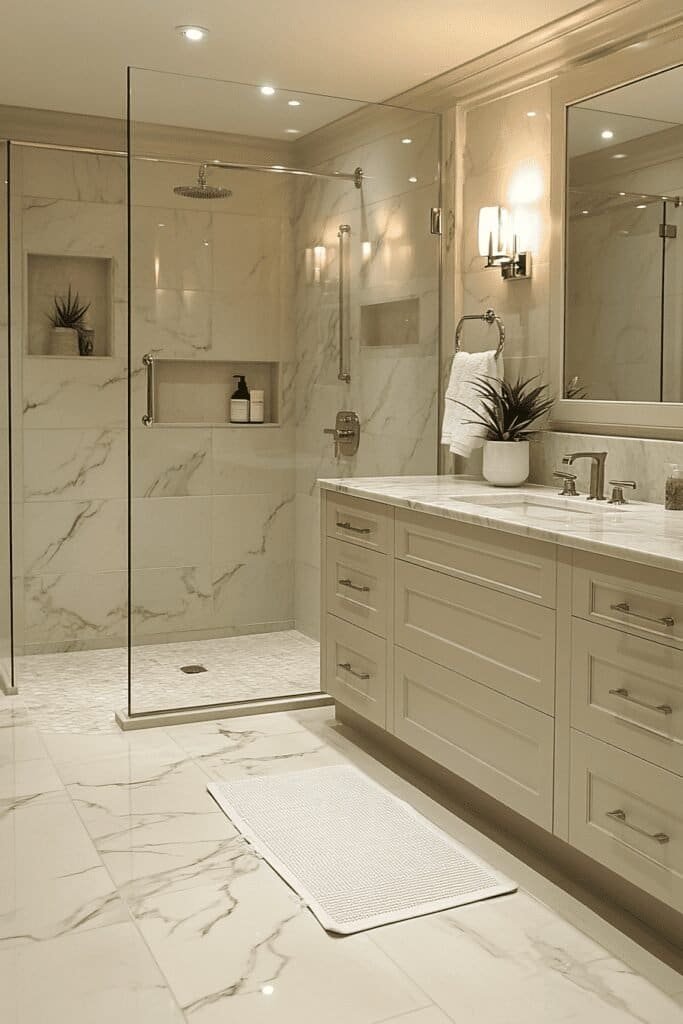

How to Budget for a Bathroom Renovation
Setting a realistic budget for your bathroom renovation cost is key to avoiding stress and staying on track financially. Start by determining how much you’re willing to spend, then break down the bathroom renovation cost into categories such as materials, labor, and contingency funds.
Build a buffer for unexpected costs—aim for around 10-15% of your budget as a contingency fund. This will cover unforeseen issues like water damage or rising material prices without derailing the project. Understanding and managing the bathroom renovation cost is essential to achieving the best results within your financial limits.
Cost-Saving Tips for Bathroom Renovations
While bathroom renovations can be expensive, there are ways to save without sacrificing quality:
- Choose Mid-Range Fixtures: High-end materials aren’t always necessary. Mid-range options can still provide great style and durability at a fraction of the cost.
- DIY vs. Professional Work: Consider tackling simple tasks like painting or minor installations yourself, but leave complex jobs, such as plumbing and electrical work, to the professionals.
- Reuse or Refinish Existing Features: Instead of replacing everything, consider refinishing the bathtub, repainting cabinets, or keeping the current layout to save on labor and materials.
These tips can help you achieve a beautiful bathroom renovation without blowing your budget.
Comparing Costs of a Bathroom Renovation vs. Bathroom Remodel
It’s important to understand the difference between a bathroom renovation and a bathroom remodel. A renovation typically involves updating the existing design and fixtures, whereas a remodel might include reconfiguring the space or moving plumbing and electrical systems.
Generally, a bathroom remodel tends to be more expensive because it often involves more extensive work, such as relocating fixtures and adding new plumbing. A bathroom renovation, which focuses more on upgrading surfaces and fixtures, can be more cost-effective.
Financing Options for Bathroom Renovations
If your renovation is more expensive than expected, consider financing options such as:
- Home Equity Loans: A popular choice for home improvement projects, as it uses your home as collateral.
- Personal Loans: These unsecured loans can be used for renovation projects but often come with higher interest rates.
- Savings or Credit Cards: If your renovation is small and within budget, using savings or a low-interest credit card might be the best option.
Choose the financing option that best fits your financial situation and long-term goals.
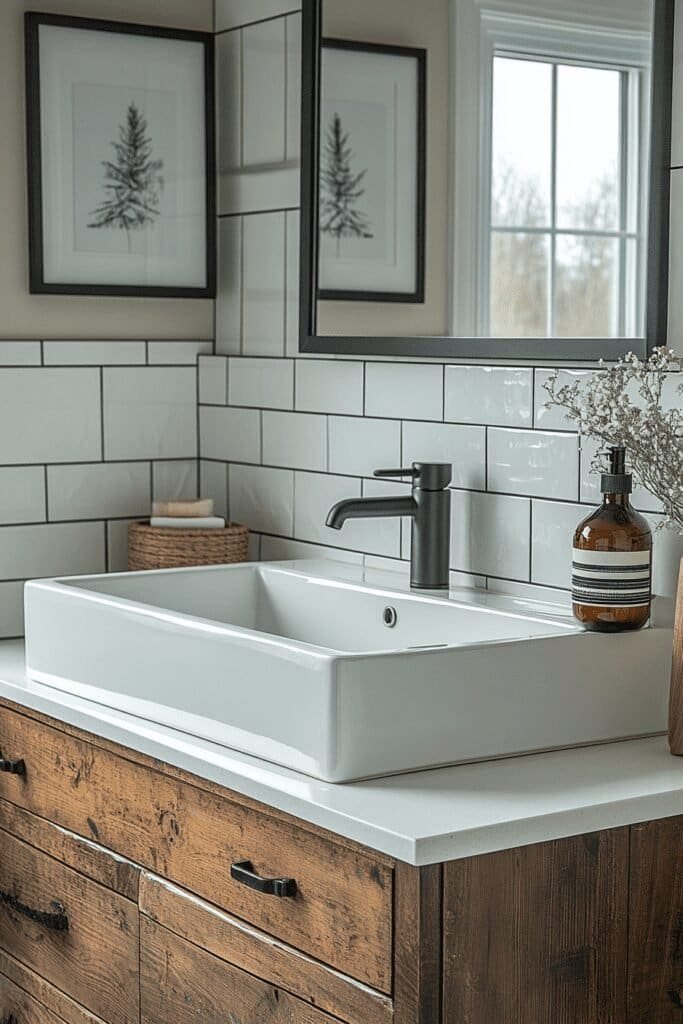

Return on Investment for Bathroom Renovations
Bathroom renovations can provide a strong return on investment (ROI), especially if you plan to sell your home. On average, homeowners can expect an ROI of 60-70% from a bathroom renovation, depending on the quality of the work and the overall market conditions.
Investing in high-demand features, like energy-efficient fixtures, heated floors, or a walk-in shower, can further boost your home’s value.
Hiring the Right Contractors for Your Renovation
Choosing the right bathroom remodel contractors is critical to keeping your project on budget and ensuring high-quality work. Always verify that contractors are licensed, insured, and experienced in bathroom renovations. Get multiple quotes to compare prices and services, and ask for references from previous clients.
Working with experienced, reliable contractors will save you time, money, and headaches in the long run.
Conclusion
A bathroom renovation is an exciting opportunity to enhance your home, but understanding the cost breakdown is essential to managing your project effectively. By considering factors like materials, labor, and hidden costs, you can create a realistic budget that fits your needs. Whether you’re planning a small refresh or a full-scale remodel, hiring the right bathroom remodel contractors and staying on top of your budget will help you achieve a beautiful, functional bathroom without overspending.
FAQs
What’s the average cost of a bathroom renovation?
The average bathroom renovation costs between $10,000 and $25,000, depending on the size of the bathroom and the quality of materials.
How much should I budget for a small bathroom renovation?
For a small bathroom, you should budget between $6,000 and $15,000, depending on the complexity of the project and the materials you choose.
Can I save money by doing some work myself?
Yes, tackling simple tasks like painting or minor installations can save money, but always leave complex work, like plumbing and electrical, to professionals.
What factors increase the cost of bathroom renovations the most?
Moving plumbing or electrical fixtures, choosing high-end materials, and addressing hidden issues like water damage are among the biggest cost drivers.
Is a bathroom renovation worth the investment?
Yes, bathroom renovations typically offer a solid return on investment, especially when done with quality materials and attention to functionality.
How long does a typical bathroom renovation take?
A standard bathroom renovation typically takes between 3 and 8 weeks, depending on the scope of the project and any unforeseen delays.
Disclaimer: As an Amazon Associate, I earn from qualifying purchases. This means that if you click on certain links on this site and make a purchase, I may receive a small commission at no additional cost to you.
